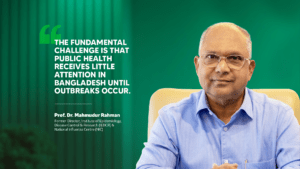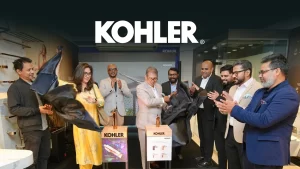Club History
North South University Young Entrepreneurs Society (NSU YES!) is a club whose legacy was written in the pages of history alongside the establishment of North South University itself. Boasting 25 years of glory and excellence, NSU YES! now holds one of the best positions in the country of being the oldest and most glorious business club within North South University. When talking about the history of NSU YES!, one will have to take a trip down the memory lane and travel through a past enriched with an unparalleled success rate and a lineage of gifted individuals who have gone on ahead to make their mark on the corporate arena and have claimed eternal glory. NSU YES! simply does not focus solely on creating stellar events but also on creating and developing the individuals to grace its halls as entrepreneurs and successful individuals. The clubs focus on collective growth has yielded some amazing results in the development of the club’s members and created the ripple effect of development, now established as a prominent entity among all the student-run organizations in Bangladesh when it comes to creating amazing individuals as well as organizing events that have gone on ahead to be benchmark-setters among its peers.
Club Mandate
In the public eye, NSU YES! is seen as a giant in the student-run organization community which is known for organizing 4 glorious events every year. However, within the four walls of club room 103, NSU YES! is seen as an arena of limitless development and growth of its members. The clubs primary focus is to create unique and talented individuals who would represent the club in the corporate world and make a name for themselves in their professional career and as entrepreneurs. The club encourages its members to participate in all forms of competitions and extra-curricular activities to strengthen their skills and develop various traits.
Events
North South University Young Entrepreneurs Society (NSU YES!) organizes a plethora of events every year. The club has a total of 4 events under its banner; Ad-Maker Bangladesh, Masters of Ideation, Entrepret and NSUers Meet Corporate Icons (NMCI). Each of these events encourage its participants to explore a certain aspect of the corporate world and brings forth a huge engagement rate with participants from all over Bangladesh taking part in the competition.
Ad-Maker Bangladesh is the clubs very own 360-degree Marketing Competition. Having very recently completed its 8th Season in 2019, it is considered as one of the top-most marketing competitions within Bangladesh.
Entrepret is the club’s very own take on entrepreneurial competitions. Combining business idea competitions with the authentic format of “Shark Tank”; it is regarded as one of the most intense yet rewarding competitions across Bangladesh.
NSUers Meet Corporate Icons (NMCI) is NSU YES!’s very own intra-university seminar which connects the pioneers of the corporate world with the up-and-coming business personas of tomorrow within NSU. Having completed 8th successful editions, this event is considered as the ultimate platform for the students of North South University to develop their networking regime.
Masters of Ideation is a strategy-based competition that requires participants to come up with critical and analytical solutions to cases pertaining to a certain aspect of business. It has been a successful event ever since its inception in 2011.
Activities
The club’s operations focus mostly on member development. Multiple Member Development Programs (MDPs) and Leadership Development Programs (LDPs) are held for members throughout every semester where professionals take master-classes to help develop unique skill-sets among the members of the clubs. The club also hosts various events throughout the year that focuses on all-round development for their members.
Interview with Founding President
Mr. Shahyok Ahmad, CEO, Xuritials
1. Whose brain child was YES!?
YES! Was not my brain child. We had a teacher at that time, I am talking about 1994-95, his name was Mr. Quazi Mahmud Ahmed. Now he is a very well-known corporate trainer and he conducts training outside the country as well in Malaysia, Thailand and other countries. It was his brainchild. He was very young at that time, he had just come from abroad after completing his higher studies, and joined North South University as a lecturer. He had many ideas to do something. At that time we were fresher and we had another teacher Dr. Salauddin Ahmed. We were motivated to form the YEF club- Young Economist Forum. Quazi Sir noticed me and one day he called me to his cabin. He told me he wants to do something in field of Entrepreneurship development. That attracted me! From my childhood I was extremely fond of entrepreneurship. By childhood I mean when I was a student of grade 7 or 8 and I used to stay right behind the parliament house. I used to ride my bicycle to a place called Khamarbari where there used to be an information booth for the agricultural firms. They had small booklets on how to have a vegetable garden, how to have a fruits garden, how to cultivate, what would be your profit and so on. Back at that time I was a student of St. Josephs, I am talking about 1989. There we had a science club in school and we had participated in a science fair and we won the first prize for presenting integrated agricultural firm. So from my school level, I was very enthusiastic regarding entrepreneurship. So when Quazi sir put forth the idea of an entrepreneurship related initiative I was extremely interested. To add further, I was a commerce student with a sound knowledge of businesses, and how to form them. Start-ups, escalator programs today are a very vibrant concept, however at that time we didn’t have those. So when he came up with the idea I was very keen to explore the opportunity further. I spoke with my friends i.e. Tanvir, Masoor, Quazed, Rushi, they were willing to join hands. Then with their support YES! was launched in 1995.

2. What is the story behind the Name of the Club?
On the very first day I wrote the name normally YES, Quazi sir said not like this, there should be an exclamation mark after the name to bring that level of enthusiasm YES!
3. What was your vision for the club?
It is the same vision that I have now. The first thing is that we are a country of 180 million and the youth is enjoying the maximum demographic dividend. A larger portion of the population fall within the age of 18-35 which most countries lack. This is the exact opposite for Japan who has a huge ageing population hence if they don’t open up immigration at one point they would not have any labor force. Same goes for Scandinavian countries where the birth rate has gone negative. Hence our biggest advantage is our youth. However it is not possible to offer employment to such a huge population through jobs. Hence you have to have your own jobs, create jobs. Secondly, another thing that really inspires me is that if you back to the history, external trade was very limited. At that time every village was independent. This means someone was engaged in growing food, someone is involved in fishing, someone cattle ranching. Everyone used to work together and fulfill each other’s demand. At that point there was no unemployment. So why is there unemployment now? This is because there are many other issues involved. The first is our education system. We were told lekhaporakore je garighorachodeshey. This is a Bengali saying which in literal sense means if you study, you will be capable of getting a car for which you would have to get a job. So automatically our brain setup was pro-job not pro-entrepreneurship. Hence I was keen on creating an entrepreneurial mindset. Job should be a means of experience because without experience if you come to the business you cannot shine. Hence this entire concept of entrepreneurship held the vision of self-sustainability which I still pursue. Unfortunately even after 30 years, our mindset has not progressed too much. However, fortunately now we do see a few initiatives like Start-up Dhaka, accelerator program etc. Even some foreign organizations have bought startups and business incubators. In fact at one point in time I myself had started a similar initiative however at that time the environment wasn’t favorable. Right after graduation I started my own business which I could not sustain due to two reasons. First, as I mentioned was the mindset and second was lack of experience. Without experience I cannot run business. Currently it’s my third phase of business.
4. How important do you feel is the club culture in the life of a student?
Let me put it this way that your education (general) from theory hardly 10%-20% is directly applicable in the real life (90%-100% for technical education). So that raises the question of the importance of education system. Unfortunately our education system is not yet real-life centric. However, knowledge enriches your brain and mindset, it develops your analytical skills. When I started studying in North South, at one point in time I understood that just studying would not be sufficient. I started my career in 1995, I used to do part time job, worked for IT projects, research work, data collection, trade fair and few others. Then I started to understand that three things are important in life, in your career. First you have to have very good communication skills. No matter what you know, how much talented you are, if you cannot express or present, there is no use of it. Second, you must have a very good sense of analysis and forecast. You need to learn to assess, why did this happen, the root cause of any problem and calculate the future prospect or problems. There is no short-cut in reaching at the top. We must learn how to face the challenges. Third is a bunch of qualities- Integrity, sincerity and hard work. Sometimes, I am very frustrated with the young generation. Many of them do not have minimum level of commitment even for their parents, friends and employers. Many of them come for the interview before time portraying a need for job but do not turn up on receiving the job. Even after calling several times there is no response and the entire interview process needs to start again. This lack of commitment takes a person nowhere. When I was the club president, I was involved in a lot of things. I was also doing part time job. I simultaneously maintained my studies, my work and my club. This ability developed due to the club culture. I am what I am today because of YES! club. There were numerous Shayokh in North South like me, all those have probably not even been able to reach the position of a General Manager where I have reached to Executive Director or CEO level. All of this happened because YES! helped me to develop myself. It helped me with how to organize things, how to deal with the things, and how to manage things. All of these are skills that people learn on the job after reaching a managerial position I had acquired through my club activity. So without the club culture, these skills would not have been developed.
5. What are some of your fond memories of the club?
We had done an entrepreneurship fair. The students came-up with such amazing and unique ideas that if this platform was not given maybe these talents would have been left out. I had to go to many corporate houses for this fair. Second, we had published a magazine. We were given 5000 taka from the University for the Magazine. The press charged 10,000 taka. We were short of money. We managed connections among friends to find personal sponsorship and we also found one however we got only 2000 taka instead of 5000 taka from them due to the printing error which did not highlight the sponsor. We might not have had financial flexibility but we had very strong bondage among ourselves which made our journey very memorable.
6. Tell us about the very first events from the club?
The very first event of YES! club was fully sponsored by us. We used our pocket money to decorate the entire campus, we rented out around 115 plants from the nearby nursery. Quazi Sir, also sponsored some fund. At that time the campus was in Star Tower. The first campus of North South University was in Abedin Tower, then it shifted to Star tower and expanded to Sher Plaza. This I am talking about the 95. This got us into the management’s attention. Quazi sir was asked by the management who is doing all of this, to which he mentioned my name explaining that we wanted the campus to look beautiful. All of this we had done with our pocket money, it cost us around 3000 taka and entire month my pocket money was 500 taka, so I spent my entire money for decoration purpose. Upon hearing this, the NSU President (Vice Chancellor) granted us the permission for the club.
7. How different do you feel is the club now from your time?
Back when we started the club we did not have any room, nowhere to sit, nowhere to work. We sat in the commonplace. Sometimes Quazi sir would ask us to use his room, so we started using his room as the club office. Another difference is the club budget and sponsorships. We did not get a huge budget, it was 20,000 taka. Sponsorships at that time were also not allowed.
8. We can imagine that you have now experienced being at both end of the sponsorship meetings? What difference do you see in each role?
Identify to whom you are going for sponsorship. Ensure that company has some interest and benefit from this sponsorship. For example if we go to a youth brand it will be willing to sponsor as opposed to hospitals and institutions who are not youth oriented. Always ensure a smart approach, understand your target audience. Seeing is believing, your organized approach makes a difference as well. Apply the four P’s of marketing in your proposal. Focus on the sponsor’s benefit and highlight that in your proposal.
9. You have set a prime example of success, managing both club and academic life and reached at this position now. Tell us a little about your journey and how you managed this so smoothly?
First thing is planning is most important. The Japanese spend more time on planning than on execution. Their precision level is such that even a TV placement is mapped beforehand to avoid any error at all. They follow a concept of Zero Defect which is opposite of the Chinese concept of Economies of Scale. There is no right and wrong. So coming back to your question of how I managed everything. I would first see my class timings and ensure I finish my classes by the first half of the day. Club activities were also preplanned and organized as per calendar. After lunch I would go out for my job. Life is never a bed of roses. Forget about me, imagine a Prime Minister, how she manages so many things. So many ministers are reporting to her, there are so many political issues, so many international issues but she manages it all. If you want to reach at a high position you need to be multitasked.
There is also a story how I realized the importance of a multi-tasker. At our time there were 2-3 main Business Schools in Dhaka i.e. IBA, NSU and IUB. There were around 200 graduates of BBA from IBA and around 500 from NSU and IUB. I assessed every year around 700 BBAs come into the market, and among them there are a lot of GPA 4 but I was not on the top list. So why should a company choose me? Answers like I am honest and hardworking are not reasons, they are basics that you are expected to have. Then if I say I am ready to learn everything you teach me, the company is not your faculty, it won’t tutor you if it has to then why should they pay you or even hire you! So then what works as an answers? The answer is experience. I started my fulltime career mid-level, not as a junior executive and reached a senior position so fast that I was five years ahead of those who started with me. I was a good planner, multi-tasker, hard worker, team player and obviously matured business analyst which helped me to reach my goal.
Interview with Faculty Advisor
Mr. Samuel Mursalin, Lecturer, NSU
1. How long have you been the faculty advisor of YES club?
It’s been almost 2 years now.
2. Given the variety of clubs in NSU, tell us how the YES club stands out?
NSUYES! is hands down the most prestigious and renowned club at NSU. The very core of this club has always been the club members. The club attracts the most talented, dedicated and hardworking students of NSU. We have a very rigorous recruitment program that handpicks the very best to carry the badge not only when they are at the club but also after they get into the corporate world. That is why, you will see every YES!er having a strong professional network that allows seamless transition between academics and corporate.
In addition, we encourage diversity. We have aspiring entrepreneurs who already run their own businesses. We have ambitious individuals who want to make a mark in the corporate world. All of them come to this club with a common goal: become the best version of themselves.

3. What platform does the club offer to the growing potential?
Anyone working for YES! club or participating in a club event will always get a learning experience that he/she can utilize in his/her career.
For the members of the club, we organize numerous Member Development Programs (MDPs) to nurture skills in various aspects, such as elevator pitch presentation, case-study solving, CV writing and interview grooming, creative designing and many others. Through these programs and the creative space that we create at the club, we make sure that the members are ready to tackle real-world challenges, be it their own business or their jobs.
For the students from all over Bangladesh who participate in our events, our main focus is to bridge the gap between the academic and the professional worlds. To that end, we organize events that make the students solve challenging real-world issues. We invite respected industry professionals as judges so that the students get the opportunity to expose themselves to successful corporates and entrepreneurs.
4. What tips or advice would you give to someone interviewing at The University Club?
During an interview, show how valuable you are. At the end of the day, the decision comes down to what value a certain member adds to the club. Some can be good in leading, some can have flair of imagination in art and design and some can have widespread professional networks. Use effective communication skills to convey that you can be a valuable asset for the club. Give to the club, the club will give you back.
5. Please share an example of how you helped coach or mentor someone. What improvements did you see in the person’s knowledge or skills?
The two names that come on the top of my mind right now are Mehrab Momin Sachcha and Mysun Maliha.
Mehrab was the Joint Secretary for the 2018-2019 fiscal year. I gave him the responsibility to look after everything related to marketing, starting from overseeing social media content to leading a team full of designers. However, he had no expertise in marketing prior to taking up the post as he was a Finance major.
Mehrab sat down with me whenever he could and put extra hours to get a thorough understanding of marketing. He even read a marketing case-study book to understand how the marketing world works. Credit to him and his team that took the club to a new benchmark.
Mysun is the current Treasurer and Internal Affairs In-Charge. It is very rare for an Executive Board Member to take up two roles at the same time. Just like Mehrab, Mysun did not have the required expertise to maintain accounting books. With time, she has grown into her role and is doing a fantastic job. I know for a fact that Mysun will lead one of the biggest companies in Bangladesh one day. That is why, giving her additional responsibility only prepares her faster to become the person that she needs to become.
Moral of the story: Responsible individuals will always find out a way to crawl out of adversity.
6. Provide an example of when you set expectations and monitored the performance of subordinates. What guidance and direction did you find most effective?
I have chosen the members of the current Executive Board to rebuild the club from within. We feel that the current members of the club need grooming and guidance. Also, we want to empower the General Members of the club to take more responsibility and attain their objectives in a flatter organizational structure. I believe the real motivations become more observable in an environment without restrictions. People who deliver without the fear of hierarchy and organizational restrictions are the gems that we want to unearth.
So far, the board has done a good job. They have been trying to give more autonomy to the members. The initial response is decent, though I expect General Members to do more.
7. In your experience, what is the key to developing a good team?
First, every member in a team must understand what the common goal of the team is. Second, the individuals must have the mentality that there is no “I,” “me,” “mine,” and “myself,” in a team. It’s always “we.” Third, the team must be led by a leader who leads by example, not by a boss that commands. Last, the team members must
have a thorough understanding of their own skills, expertise and personalities and delegate responsibilities accordingly to maximize output of the team.
8. Tell us about how you organize, plan, and prioritize your work.
Whenever I get a task, I try to put it in one of the three following priority blocks: needs my attention immediately; can wait for a few days or can be delegated to someone else. While I focus on the first two blocks, I constantly take feedback from the person who is doing my work and provide guidance to do the work.
While setting benchmarks, first, I decide on ‘the like to have-s’ and ‘the must have-s.’ If ‘the like to have-s’ become unattainable, the minimum that should be settled for are ‘the must have-s.’
9. What according to you is the key strengths of YES club?
The heart of NSUYES! is its member base. The sheer diversity of backgrounds, expertise, personalities and mindsets allow individuals to learn from each other and embrace openness. The bond that the members share with each other is very special.
In addition, the club has a strong alumni base who constantly provide support and guidance whenever required. The members of NSUYES! have good image in the corporate world because of the success of its alumni base not only in Bangladesh but also abroad. Even after becoming leading industry professionals, these people still hold the club dearly in their hearts and feel like a part of it.
10. If you were to describe YES in one word, what would it be?
Famiy.
11. While putting together an event what is the core strategies in action?
First and foremost, we focus on the learning outcome of our participants. For the competitions, such as AdMaker Bangladesh, Masters of Ideation and Entrepret, we expect the participants to take away specific learnings every round which eventually lead to a wholesome experience by the time they cross all the hurdles.
We plan each round carefully so that we can blend the real-life challenges that business people face with the academics. We bring in leading industry professionals as judges so that the participants can maximize their learning and bridge the gap between the corporate world and the academics.
Through our roadshows and online promotions, we try to reach universities all across Bangladesh so that we can encourage a healthy competition and maximize the learning of the participants.
12. Please enlighten our readers with a few words of advice regarding the importance of maintain a balanced undergraduate life instead of just focusing on the grade point.
Our education system does not deliver students that can join the workforce and be 100% productive from day 1. The system does teach relevant concepts and nurture cognitive thinking. To understand that the concepts are actually relevant in the real world, students must implement the concepts in a practical setup. That is when students will get the full value of their learning.
Extracurricular activities and part-time jobs alongside studies expose the students to some much-needed practicality. When students go beyond the walls of classrooms, they have to implement their knowledge and come up with action plans that they would have never done inside a classroom, nurturing the decision-making ability and increasing self-confidence.
Also, I recommend students to pursue opportunities to learn multiple hard skills that are of interest. For example, Microsoft Excel, app and website designing, graphics designing, statistical analysis, marketing research, photo and video editing and many others. These skills, along with their proper utilization in a practical setup, will enhance the prospects of students more than just having good CGPAs.






